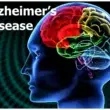Alzheimer’s Disease Advocacy Efforts
Increasing Public Knowledge and Pushing for Reform: Combating Alzheimer’s
Millions of people worldwide are impacted by Alzheimer’s disease (AD), a progressive neurological illness that steals independence and memories. Raise awareness and push for change because there is no cure and it affects people, families, and healthcare systems greatly. Here are some of the major advocacy and campaign initiatives driving the battle against AD.
Table of Contents

Bringing the Illness to Light: Awareness Initiatives
Alzheimer’s Disease Advocacy Efforts
- Both domestic and global campaigns: Campaigns to raise awareness are led by groups like Alzheimer’s Disease International (global) and the Alzheimer’s Association (US). These efforts inform the public on the risk factors, warning signs, and resources for AD through a variety of media, including radio, television, and social media.
- On World Alzheimer’s Day: World Alzheimer’s Day is celebrated on September 21st. This yearly occasion provides a worldwide forum for addressing the stigma associated with AD and increasing awareness. Public participation and conversations about the illness are encouraged by events, activities, and social media campaigns.
- Early Detection Initiatives: The significance of early detection is frequently emphasised in campaigns. Early warning indicators enable people to get diagnosed, make plans for the future, and possibly gain from treatments that are available.
These awareness-raising initiatives are essential for:
Alzheimer’s Disease Advocacy Efforts
- Encouraging individuals and families: Knowledge enables people to identify possible signs of AD in themselves or loved ones, which encourages them to get help and a diagnosis.
- promoting research and development: A heightened public consciousness results in augmented backing for research financing, which in turn propels progress in diagnosis, therapy, and possibly a remedy.
- Reducing stigma: Honest discussions about AD can help debunk myths and false beliefs, making the community more accepting of those who are impacted by the illness.
- Promoting Change: A Collective Voice AD advocacy campaigns concentrate on influencing legislative choices and obtaining funding for the disease’s fight.
This comprises:
Alzheimer’s Disease Advocacy Efforts
- Advocacy groups: collaborate with legislators to push for more government funding for early detection initiatives, carer support services, and research.
- Pushing for Policy Changes: It is critical to promote policies that increase AD patients’ access to high-quality care and offer carer assistance.
- Encouraging Research Initiatives: The goal of advocacy work is to expedite clinical trials, simplify the approval procedure for research, and promote cooperation among government agencies, pharmaceutical corporations, and researchers.
Beyond these general objectives, advocacy initiatives also aim to:
Alzheimer’s Disease Advocacy Efforts
- Raising: awareness of the need for better education for medical personnel on the identification and treatment of AD in order to provide patients with high-quality care.
- Promoting legislation: that provides financial aid, mental health help, and respite care programmes for carers who are up against overwhelming obstacles is one way to promote the well-being of carers.
- Encouraging social inclusion: The goal of advocacy work is to establish a welcoming atmosphere for people with AD so they can continue to play an important role in society for as long as possible.
The Strength of Group Initiatives: Your Role in Participating
Alzheimer’s Disease Advocacy Efforts
In order to combat Alzheimer’s disease, we must work together. The following are some ways you may help:
- Raise awareness: You can talk to friends and relatives, take part in walks or fundraisers, or post information about AD on social media.
- Encourage: advocacy groups with your support: Give time or money to groups that are spearheading the fight against AD. Their websites frequently provide information on how to get engaged as well as volunteer opportunities.
- Speak with your delegates: Speak up in favour of funding and policies that deal with AD. Inform your lawmakers of your importance for Alzheimer’s research and care.
Alzheimer’s Disease Advocacy Efforts
Together, advocacy and awareness initiatives can advance research towards a cure for AD while fostering a more knowledgeable and encouraging environment for those impacted by the disease.


